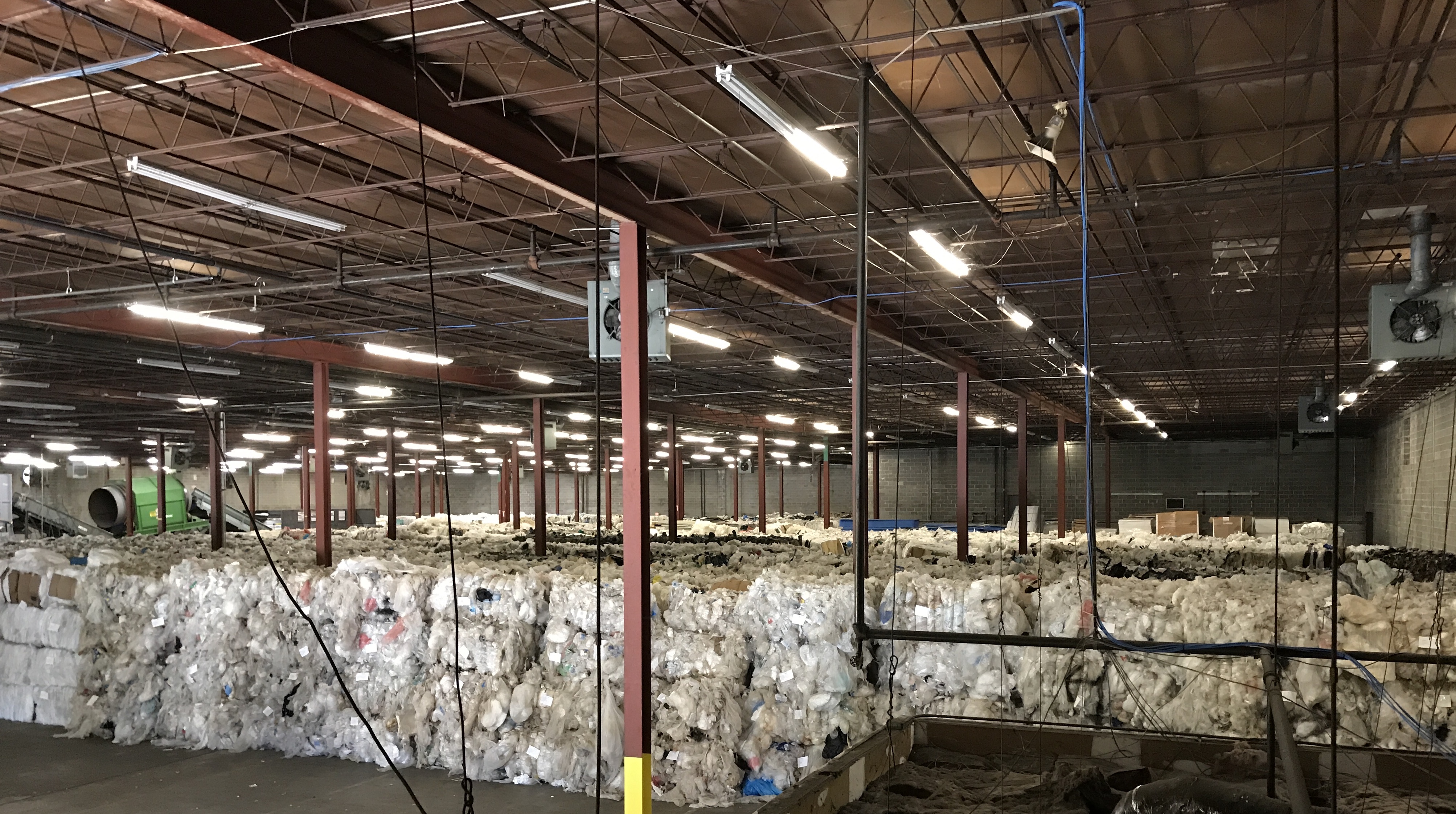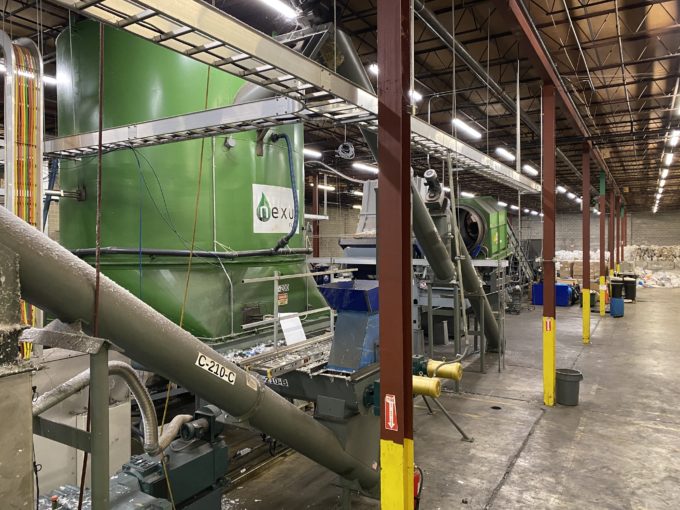Edit: Nexus Fuels is now Nexus Circular
The Circularity Challenge is a six-month accelerator run by Greentown Labs and BASF—one of the world’s leading chemical companies—and supported by Stanley Black & Decker. The program is focused on disrupting the plastics, energy storage, and recycling value chains. Keep an eye on our website for profiles on all five program participants!
Imagine turning the most difficult-to-recycle plastics into fuel or virgin plastic rather than sending them to landfills.
Sound too good to be true? Nexus Fuels’ plant outside of Atlanta, GA does just that.
“Their end of life is extremely limited,” CEO and founder Jeff Gold says of the post-industrial and post-commercial plastic waste that Nexus handles. “They can be used for plastic lumber and things like that, but when we say ‘hard-to-recycle plastics,’ these are the ones that really are destined for the landfill.”
Surprisingly, the basic technology for this has been around for decades. But when pyrolysis (decomposition brought about by high temperatures) was first developed, the market demand wasn’t there: managing plastic waste wasn’t urgent and oil prices were low.
The Nexus team learned from pyrolysis’ history that it was absolutely essential to make the process economically viable. The company’s technique costs a quarter of its competitors’, according to the team, thanks to energy-efficient technology and low overhead costs.
“A lot of it is the innovation and the design that has gone into the technology itself, in terms of squeezing every last bit of energy—whether that be in the form of electrical or heat energy—out of this system,” Gold explains. “It’s how the material moves and flows in the reactor that we’ve designed.”
 Nexus’ energy returned over energy invested (EROEI) is six times that of its competitors, according to the company.
Nexus’ energy returned over energy invested (EROEI) is six times that of its competitors, according to the company.
The Nexus team also underlines the importance of having a viable business model. “To solve environmental challenges, any recycling solution must be economically sustainable, meet all regs, and operate with financial discipline,” says Eric Hartz, Nexus’ president and co-founder.
Nexus announced in late 2019 that it’s providing Shell with liquid feedstock derived from plastic waste, which Shell is using to make high-end chemicals. Shell aims to use 1 million tons of plastic waste annually by 2025, according to a press release. Shell is a longtime partner of Greentown Labs.
“This makes sense for the environment and our business,” Thomas Casparie, executive vice president of Shell’s global chemicals business, said in the release. “We want to take waste plastics that are tough to recycle by traditional methods and turn them back into chemicals—creating a circle. These chemicals will meet our customers’ growing demands for high-quality and sustainable products.”
Nexus was drawn to the Circularity Challenge, spearheaded by Greentown’s internal accelerator, Greentown Launch, for the chance to work with leading chemical company BASF.
“We’ve been really pleased with how it’s structured,” Gold says of the program. “The workshops have been great, the other companies have been interesting to meet, the mentor relationships have been very beneficial.”
In 2020, the 16-person team will update its technology and look to open additional facilities.
Greentown Labs is a community of bold, passionate entrepreneurs creating solutions for today’s biggest climate and environmental challenges. Located in Somerville, Mass., the Greentown Labs Global Center for Cleantech Innovation is the largest cleantech incubator in North America, operating a 100,000 sq. ft. campus comprised of prototyping and wet lab space, shared office space, a machine shop, electronics lab, and a curated suite of programs and resources. Greentown Labs is home to more than 100 startups and has supported more than 230 since its inception.


